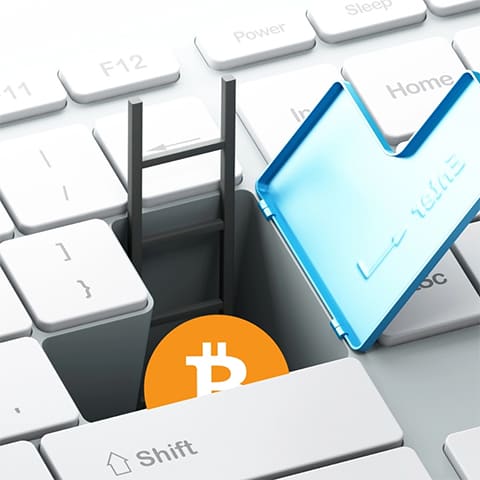Crypto Asset Regulation in the UAE - A Guide
 The sphere of crypto assets is continuously evolving in all spheres in the global area. The terminology is simultaneously advancing with terms such as crypto assets, cryptocurrencies, security tokens, etc. The regulation of these crypto-assets is a matter of frequent discussion as to what extent governments and agencies should regulate these assets. The complex terminologies that are used explain the vast sphere of what crypto assets are. Keep in mind that although individuals and market players interchangeably use these terms, the term cryptocurrency is the most familiar and commonly used crypto-asset, which just comes under s singular arena of what crypto assets widely are. Bitcoin is primarily the most popular cryptocurrency. In a broad sense, crypto assets are digital assets that employ cryptography technology to carry out financial transactions.
The sphere of crypto assets is continuously evolving in all spheres in the global area. The terminology is simultaneously advancing with terms such as crypto assets, cryptocurrencies, security tokens, etc. The regulation of these crypto-assets is a matter of frequent discussion as to what extent governments and agencies should regulate these assets. The complex terminologies that are used explain the vast sphere of what crypto assets are. Keep in mind that although individuals and market players interchangeably use these terms, the term cryptocurrency is the most familiar and commonly used crypto-asset, which just comes under s singular arena of what crypto assets widely are. Bitcoin is primarily the most popular cryptocurrency. In a broad sense, crypto assets are digital assets that employ cryptography technology to carry out financial transactions.
The scope of regulations for crypto assets executed by various governments largely depends on the countries, as there is no uniform mechanism or extent. The use of cryptocurrencies has been restricted by way of limitations in certain countries. In contrast, others have made the use of crypto transactions illegal, and others who completely ban the use of cryptocurrencies impose penal sanctions for the use of the same. The International Monetary Fund (IMF) has highlighted the need to teach more effective regulations of the use of cryptocurrencies worldwide as the negative impacts of its overuse and misuse can lead to financial instability in countries, deceiving and cheating of customers, and the financing of terrorism.
The United Arab Emirates, being a Federal State, each of the seven Emirates have jurisdiction over matters concerned with them, whereas the Federal State governs the rest. Issues concerning banking and financial matters and their regulations come under the purview of the Federal State. The economic free trade zones in the UAE are split into financial free zones and non-financial free zones. The financial free zones of the UAE are the Dubai International Financial Centre (DIFC) and the Abu Dhabi Global Market (ADGM). The regulation of the financial sector and other markets and activities within Onshore UAE is the responsibility of the UAE Central Bank and the Securities and Commodities Authority (SCA). Crypto assets are not expressly banned or illegal within the UAE; however, the same regulation is in Onshore UAE, the ADGM, and the DIFC.
Dubai International Financial Centre (DIFC)
The DIFC is regulated by the Dubai Financial Services Authority (DFSA). The regulation of crypto assets within the UAE has not usually been made in the DIFC, and licensing for activities related to crypto-assets was not provided. However, on October 25, 2021, the DIFC established the initial stage of the DFSA's digital assets regime with the introduction of the DFSA regulatory framework for investment tokens.
Activities by individuals concerning investment tokens within the DIFC need prior authorization from the DFSA. The concerned activities involve the use or trade of investment tokens in any form or scale. This would include investment token-related financial services, financial promotions, offers to the public, or securities. Hence, investment tokens are likely to be taught into one or more categories of securities or derivatives. This will be based on the specific nature of its rights and obligations. The significant distinction between investment tokens and other standard securities or derivatives is that investment tokens confer rights on holders that use cryptography technology for issuing, storing, and transferring.
The DFSA has made certain specifications to properly consider whether a token is an investment token or not and the type of security or derivate it may accordingly fall under. This includes considering the various rights and simultaneous obligations to be met by holders of such tokens expressed in marketing materials, documents, and other jurisdictions. For further development in crypto assets, the DFSA is taking steps to create frameworks for the regulations of investment tokens and other crypto assets, specifically cryptocurrencies and utility tokens.
On Shore UAE
 The regulation of cryptocurrencies within the UAE was provided by the Securities and Commodities Authority (SCA) through SCA Decision No. 23 of 2020 concerning Crypto Assets Activities Regulation (CAAR). This regulation has the authority to regulate all activities concerning crypto assets within the UAE, including issuing, listing, and trading. CAAR defines crypto-assets within its purview. The CAAR is the licensing and regulatory authority for crypto assets used in the UAE. The ranges of the use of crypto assets include issuing and promotion, custody services, exchanges, and platforms to raise funds. The application of the CAAR consists of all forms of cryptocurrencies used and recognized in the market for listing and trading. However, those items that come under the regulation by the UAE Central Bank do not come under the purview of the CAAR. These items would include currencies inclusive of digital and virtual, stored value units, payment tokens, and units.
The regulation of cryptocurrencies within the UAE was provided by the Securities and Commodities Authority (SCA) through SCA Decision No. 23 of 2020 concerning Crypto Assets Activities Regulation (CAAR). This regulation has the authority to regulate all activities concerning crypto assets within the UAE, including issuing, listing, and trading. CAAR defines crypto-assets within its purview. The CAAR is the licensing and regulatory authority for crypto assets used in the UAE. The ranges of the use of crypto assets include issuing and promotion, custody services, exchanges, and platforms to raise funds. The application of the CAAR consists of all forms of cryptocurrencies used and recognized in the market for listing and trading. However, those items that come under the regulation by the UAE Central Bank do not come under the purview of the CAAR. These items would include currencies inclusive of digital and virtual, stored value units, payment tokens, and units.
The UAE Central Bank introduced more issuances in 2020 concerning a new Stored Value Facilities Regulation (SVF Regulation) and the same scope. The introduction of the SVF Regulations cleared certain uncertainties concerning the legality of crypto assets within the country as crypto-assets were incorporated into the definition of 'Stored Value Facility.' The Central bank further notified that accepting crypto assets within the UAE is not considered legal tender. The solitary legal tender within the UAE is the UAE Dirham. The Retail Payment Services and Card Schemes Regulation (RPSCSR) was subsequently issued, which is to be applied to a Payment Token Service. This crypto asset can be traded in the digital arena and backed by fiat currencies.
Abu Dhabi Global Market (ADGM)
The Financial Services and Markets Regulations 2015 (FSMR) regulates crypt assets in the ADGM, and the subsequent regulatory authority is the Financial Services Regulatory Authority (FSRA). Virtual Assets under the command of FSMR is the digitally acceptable value that is eligible for digital trading by way of mutual agreement among the users of these assets and is not guaranteed by any jurisdiction. The rules for conducting activities dealing with Virtual Assets in the ADGM are provided under the Conduct of Business Rulebook (COBS).
 The regulation of crypto assets within the UAE and other Countries is dynamic and subject to continuous developments in this sphere. There is a need for constant progress in regulating crypto assets by authorities to ensure that risks are dealt with, and the various changes in the crypto sphere are deliberated upon and subsequently handled. Considering the changes within the UAE itself, there has been a new Memorandum of Understanding signed between the SCA and the Dubai World Tarde Centre Authority, marking the SCA as the regulatory authority for authorizing and licensing activities inclusive of other financial activities concerning crypto assets within the purview of the Dubai World Trade Centre Authority Freezone. The various matters arising out of the crypto sphere within the country and around the world provide better opportunities to comprehend the new horizons of technology and innovation to advance in crypto assets.
The regulation of crypto assets within the UAE and other Countries is dynamic and subject to continuous developments in this sphere. There is a need for constant progress in regulating crypto assets by authorities to ensure that risks are dealt with, and the various changes in the crypto sphere are deliberated upon and subsequently handled. Considering the changes within the UAE itself, there has been a new Memorandum of Understanding signed between the SCA and the Dubai World Tarde Centre Authority, marking the SCA as the regulatory authority for authorizing and licensing activities inclusive of other financial activities concerning crypto assets within the purview of the Dubai World Trade Centre Authority Freezone. The various matters arising out of the crypto sphere within the country and around the world provide better opportunities to comprehend the new horizons of technology and innovation to advance in crypto assets.
 English
English
 عربي
عربي Русский
Русский 官话
官话 português
português
 Türk
Türk 





















